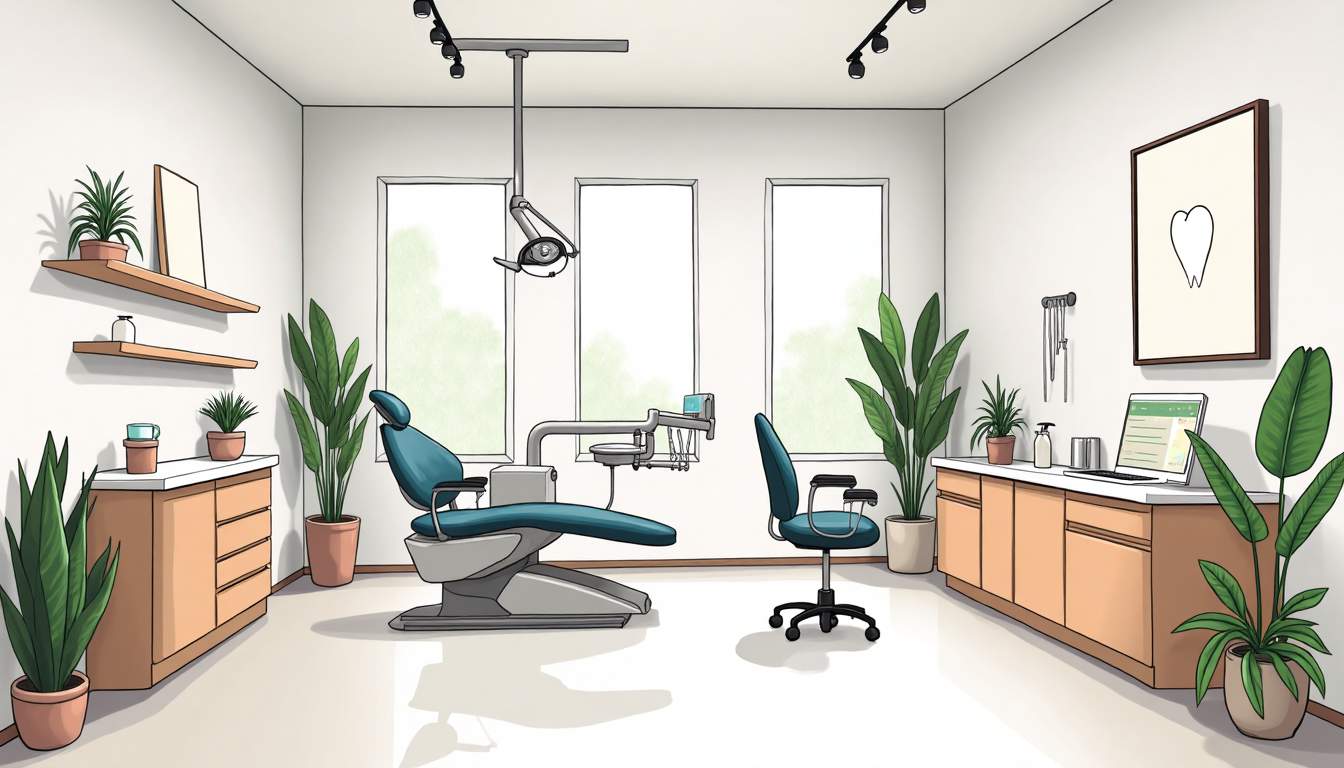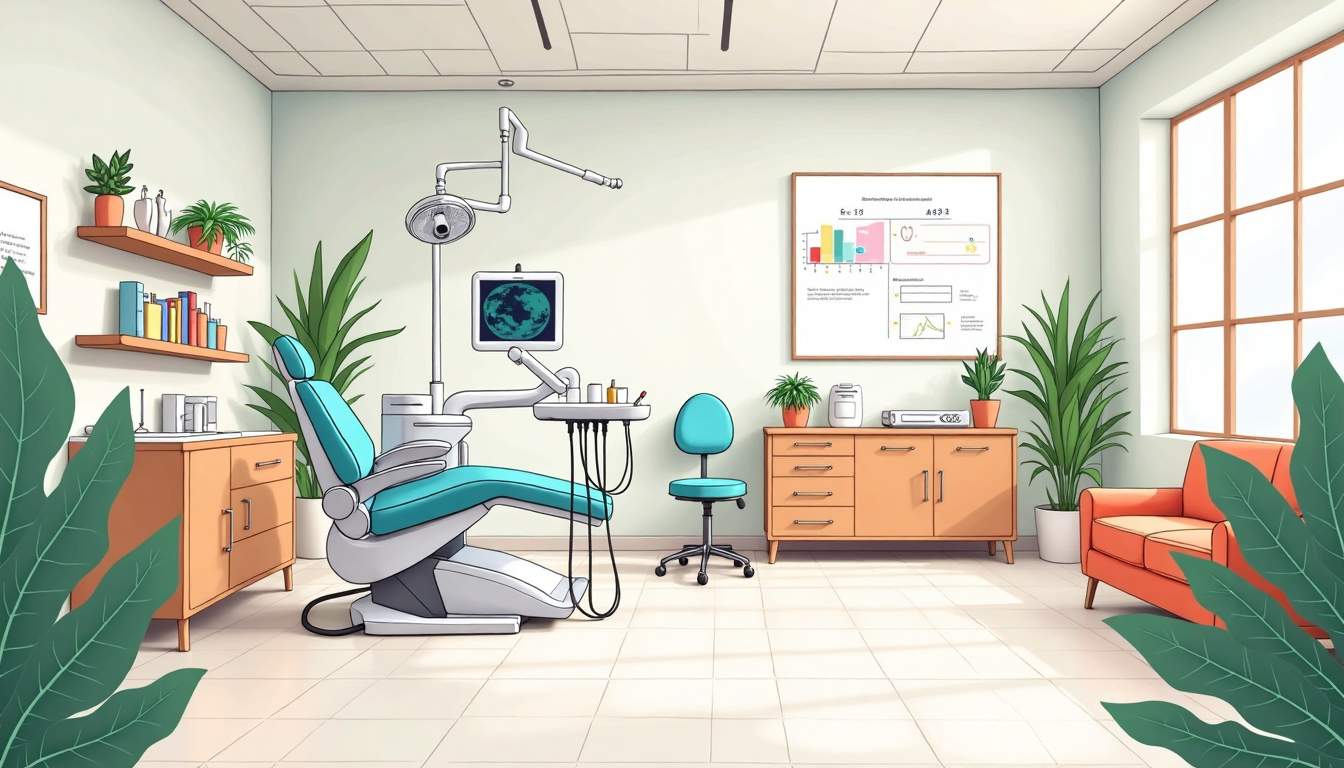
Visiting a dental clinic for the first time can be a mix of excitement and anxiety. Whether you’re scheduling a routine check-up or addressing a specific dental concern, being prepared can make the experience smoother and more comfortable. This comprehensive guide will walk you through everything you need to know to get ready for your initial dental appointment, from understanding what to expect to practical tips that ease any nerves.
Understanding the Importance of Your First Dental Visit
Your first dental visit sets the foundation for your oral health journey. It’s not just about cleaning your teeth; it’s an opportunity for the dentist to evaluate your overall dental health, identify potential issues early, and create a personalized care plan tailored to your needs.
Many people avoid the dentist due to fear or uncertainty, but establishing a relationship with a dental professional early on can prevent minor problems from turning into major ones. Early detection of cavities, gum disease, or other oral health issues can save you time, discomfort, and money in the long run.
What Happens During the First Visit?
During your initial appointment, the dentist will typically perform a thorough examination of your teeth, gums, and mouth. This may include:
- Reviewing your medical and dental history
- Checking for cavities, gum disease, or other oral health problems
- Taking X-rays if necessary to get a detailed view of your teeth and jawbone
- Cleaning your teeth to remove plaque and tartar buildup
- Discussing your oral hygiene habits and offering personalized advice
Understanding these steps can help reduce anxiety and prepare you mentally for the appointment. Additionally, your dentist may take this opportunity to educate you about the importance of good oral hygiene practices, including proper brushing techniques and the role of diet in maintaining healthy teeth and gums. They may also discuss the significance of regular dental check-ups and how they contribute to long-term oral health.
Furthermore, your first visit is a chance to ask questions and express any concerns you may have regarding your dental health. Whether it’s about teeth whitening options, orthodontic treatments, or the best products to use at home, your dentist at Indental Castle Hill is there to provide guidance and support. Building this rapport can lead to a more comfortable experience in future visits, making it easier to maintain a proactive approach to your dental care. For more details, visit here.
Before the Appointment: Practical Steps to Get Ready
Preparation before your visit can make a significant difference in how comfortable and efficient your appointment is. Here are some practical steps to take before you walk into the dental clinic.

Gather Your Medical and Dental History
One of the first things the dentist will ask about is your medical and dental history. This information helps them understand any underlying health conditions or previous dental treatments that could affect your care.
Be ready to provide details such as:
- Any current medications or supplements you’re taking
- Allergies, especially to medications or latex
- Previous dental treatments or surgeries
- Any chronic health conditions, such as diabetes or heart disease
- History of dental anxiety or sensitivity
If you have records from previous dentists, bring them along. This can help your new dentist get a clearer picture of your dental health. Additionally, consider jotting down any significant changes in your health since your last visit, as this information can be crucial for your dentist to know. For instance, if you've recently started a new medication or experienced any dental issues, sharing these updates will enable your dentist to provide the most tailored care possible.
Prepare a List of Questions and Concerns
It’s natural to have questions or concerns about your dental health, especially if this is your first visit. Writing down any questions beforehand ensures you won’t forget to ask during the appointment.
Some common questions might include:
- How often should I have dental check-ups?
- What is the best way to care for my teeth at home?
- Are there any specific treatments I might need?
- What options are available if I’m nervous about dental procedures?
- How can I improve the appearance of my smile?
Don’t hesitate to bring up any concerns, no matter how small they seem. Your dentist is there to help you feel comfortable and informed. Moreover, if you have specific dental goals, such as whitening or straightening your teeth, discussing these aspirations can lead to personalized recommendations and treatment plans. Remember, an open dialogue with your dentist is key to achieving optimal dental health.
Check Your Insurance and Payment Options
Understanding your dental insurance coverage or payment options before your visit can prevent surprises later. Contact your insurance provider or the dental clinic’s billing department to confirm what services are covered and if there are any out-of-pocket costs you should expect.
If you don’t have dental insurance, ask the clinic about payment plans or discounts for new patients. Many clinics offer flexible options to make dental care more accessible. Additionally, inquire about any financing options that may be available for more extensive procedures, as this can help you manage costs effectively. Some clinics even offer loyalty programs that reward regular patients with discounts or perks, making it worthwhile to establish a long-term relationship with your dental provider.
What to Expect on the Day of Your Appointment
Knowing what to expect on the day of your first dental visit can help reduce anxiety and make the experience more positive.
Arriving at the Clinic
Plan to arrive a little early to complete any necessary paperwork and to give yourself time to settle in. Bring your ID, insurance card, and any dental records you have. Wearing comfortable clothing can also help you feel more relaxed.
Dental clinics often have a friendly and welcoming atmosphere. The staff is trained to assist new patients, so don’t hesitate to ask for help or clarification if needed. Many clinics provide amenities such as complimentary beverages, magazines, or even calming music to help ease your nerves while you wait. Taking a moment to breathe deeply and focus on the positive aspects of your visit can also help set a more relaxed tone for the day.
The Dental Examination and Cleaning
The dentist or dental hygienist will begin by reviewing your medical history and discussing any concerns you have. They will then perform a comprehensive examination of your mouth, teeth, and gums. This may include:
- Visual inspection for cavities, gum disease, or other issues
- Checking your bite and jaw alignment
- Taking X-rays if necessary
- Professional cleaning to remove plaque and tartar
The cleaning process usually involves scaling and polishing your teeth, which can feel a bit strange but should not be painful. If you experience discomfort, let the hygienist know immediately. Additionally, during the cleaning, the hygienist may provide tips on proper brushing and flossing techniques tailored to your specific needs, helping you establish a better oral hygiene routine at home.
Discussing Your Treatment Plan
After the examination and cleaning, the dentist will discuss their findings with you. If any treatment is needed, they will explain the options, benefits, and costs involved. This is a great time to ask questions and clarify any doubts.
Remember, you have the right to take your time making decisions about your dental care. If you need to think about your options or get a second opinion, that’s perfectly okay. Many patients find it helpful to take notes during this discussion, ensuring they remember the details when they leave. Additionally, some clinics offer educational materials or resources that can provide further insight into your dental health, empowering you to make informed choices about your treatment plan.
Tips to Reduce Anxiety and Make Your Visit Comfortable
Dental anxiety is common, but there are effective ways to manage it and make your visit as comfortable as possible.
Communicate Openly with Your Dentist
Let your dentist know if you’re feeling nervous or anxious. They can adjust their approach, explain procedures in detail, and offer reassurance throughout your visit.
Practice Relaxation Techniques
Deep breathing, visualization, or listening to calming music before and during your appointment can help ease tension. Some clinics even allow patients to wear headphones to listen to music or podcasts during treatment.
Bring a Support Person
If allowed by the clinic, bringing a trusted friend or family member can provide emotional support and make you feel more at ease.
Schedule Wisely
Choose an appointment time when you’re least likely to feel rushed or stressed. For many, this might be early in the morning or on a day off work.
After Your First Visit: Maintaining Good Oral Health
Your first dental visit is just the beginning of a lifelong commitment to oral health. Following your appointment, maintaining good habits and regular check-ups will keep your smile healthy and bright.

Follow Your Dentist’s Recommendations
If your dentist provided specific advice or prescribed treatments, be sure to follow through. This might include using special toothpaste, flossing techniques, or scheduling follow-up visits.
Maintain a Consistent Oral Hygiene Routine
Brushing twice a day with fluoride toothpaste, flossing daily, and using mouthwash as recommended are essential steps in preventing dental problems. Regularly replacing your toothbrush and avoiding sugary snacks can also help.
Schedule Regular Dental Check-Ups
Most dentists recommend visits every six months, but your dentist may suggest a different schedule based on your individual needs. Regular check-ups allow for early detection of issues and professional cleaning to keep your teeth in top shape.
Conclusion
Preparing for your first visit to a dental clinic doesn’t have to be daunting. By understanding what to expect, gathering necessary information, and adopting strategies to manage anxiety, you can make the experience positive and productive. Remember, your dental team is there to support your oral health and overall well-being. Taking this first step is an important investment in a healthy, confident smile for years to come.
